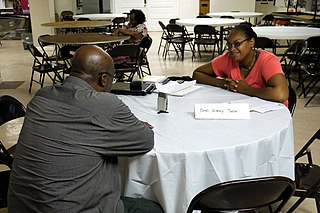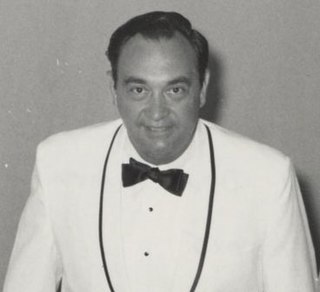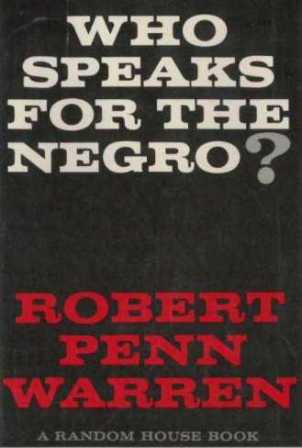Related Research Articles

Oral history is the collection and study of historical information about people, families, important events, or everyday life using audiotapes, videotapes, or transcriptions of planned interviews. These interviews are conducted with people who participated in or observed past events and whose memories and perceptions of these are to be preserved as an aural record for future generations. Oral history strives to obtain information from different perspectives and most of these cannot be found in written sources. Oral history also refers to information gathered in this manner and to a written work based on such data, often preserved in archives and large libraries. Knowledge presented by Oral History (OH) is unique in that it shares the tacit perspective, thoughts, opinions and understanding of the interviewee in its primary form.

Robert Penn Warren was an American poet, novelist, and literary critic and was one of the founders of New Criticism. He was also a charter member of the Fellowship of Southern Writers. He founded the literary journal The Southern Review with Cleanth Brooks in 1935. He received the 1947 Pulitzer Prize for the Novel for All the King's Men (1946) and the Pulitzer Prize for Poetry in 1958 and 1979. He is the only person to have won Pulitzer Prizes for both fiction and poetry.

Vernon Eulion Jordan Jr. was an American business executive and civil rights attorney who worked for various civil rights movement organizations before becoming a close advisor to President Bill Clinton.

Louie Broady Nunn was an American politician who served as the 52nd governor of Kentucky. Elected in 1967, he was the only Republican to hold the office between the end of Simeon Willis's term in 1947 and the election of Ernie Fletcher in 2003.

Whitney Moore Young Jr. was an American civil rights leader. Trained as a social worker, he spent most of his career working to end employment discrimination in the United States and turning the National Urban League from a relatively passive civil rights organization into one that aggressively worked for equitable access to socioeconomic opportunity for the historically disenfranchised. Young was influential in the United States federal government's War on Poverty in the 1960s.
Oral history preservation is the field that deals with the care and upkeep of oral history materials, whatever format they may be in. Oral history is a method of historical documentation, using interviews with living survivors of the time being investigated. Oral history often touches on topics scarcely touched on by written documents, and by doing so, fills in the gaps of records that make up early historical documents.
The Cantigny First Division Oral Histories are a collection of video oral history interviews with veterans of the 1st Infantry Division of the United States Army, commonly known as the Big Red One. The First Division was the first permanent division in the regular Army, and is recognized by its ability to improve battlefield performance through learning experiences and its exceptional “esprit de corps.”

Audrey Louise Grevious became one of the central leaders in the local civil rights movement in Lexington and the Commonwealth of Kentucky.
Douglas A. Boyd is an oral historian, archivist, folklorist, musician, and author and currently directs the Louie B. Nunn Center for Oral History at the University of Kentucky. He graduated from Denison University with a B.A. in History and graduated from Indiana University with an M.A. and Ph.D. in folklore. He is known for his work regarding oral history and digital technologies including his work designing and managing the OHMS system. Recently served as executive producer of the documentary Kentucky Bourbon Tales: Distilling the Family Spirit, as well as the award-winning documentary Quest for the Perfect Bourbon: Voices of Buffalo Trace Distillery and is active in the Oral History Association, Society for American Archivists, and the American Folklore Society. Formerly, Boyd managed the digital program for the University of Alabama Libraries, directed the Kentucky Oral History Commission, and served as the senior archivist for the folklife and oral history collections at the Kentucky Historical Society. He is co-editor of Oral History and Digital Humanities: Voice, Access, and Engagement with Mary A. Larson. Boyd is also author of Crawfish Bottom: Recovering a Lost Kentucky Community which was published by University Press of Kentucky and was featured on C-Span's Book TV. He also regularly appears on the radio show Saving Stories. He is also the producer/host of The Wisdom Project Podcast.

Douglass School in Lexington, Kentucky, US, was both a primary and secondary Fayette County Public Schools from 1929 to 1971. Douglass School operated solely for African American students. The building that once housed Douglass School, located at 465 Price Road, was listed on the National Register of Historic Places in Fayette County in 1998.
The Black Women Oral History Project consists of interviews with 72 African American women from 1976 to 1981, conducted under the auspices of the Schlesinger Library of Radcliffe College, now Radcliffe Institute for Advanced Study.
The Oral History Metadata Synchronizer (OHMS) is a web application designed to enhance online access to oral history interviews. OHMS was originally designed and created by the Louie B. Nunn Center for Oral History, University of Kentucky Libraries in 2008 for deployment through the Kentucky Digital Library. In 2011, the Louie B. Nunn Center for Oral History received a grant from the Institute for Museum and Library Services to make the system open source and free to use with interoperability and sustainability as the primary goals. According to the Nunn Center, "The primary purpose for OHMS is to empower users to more effectively and efficiently discover information in an oral history interview online by connecting the user from a search result to the corresponding moment in an interview."

Who Speaks for the Negro? is a 1965 book of interviews by Robert Penn Warren conducted with Civil Rights Movement activists. The book was reissued by Yale University Press in 2014. The Robert Penn Warren Center for the Humanities at Vanderbilt University created the Who Speaks for the Negro? digital archive featuring digitized versions of the original reel-to-reel recordings that Warren compiled for each of his interviewees as well as print materials related to the project, including the transcripts of those recordings, letters written between Warren and the interviewees, and contemporary reviews of the book.

Josephine Avalona Abercrombie was an American horsewoman, businesswoman, boxing promoter, philanthropist, and founder of The Lexington School in Lexington, Kentucky.
John Charles Wahlke was an American political scientist.
Leon David Epstein was an American political scientist.
Walton-Verona High School is a public high school located at 16 School Road in Walton, Kentucky. The school's mascot is Bearcats, and it is in the Walton-Verona Independent Schools district.

The 1968 United States Senate election in Kentucky took place on November 5, 1968. Incumbent Republican U.S. Senator Thruston Morton retired from office. Jefferson County Judge Marlow Cook won the open seat.
Adolph Monroe Edwards Jr. was an American lawyer and statesman, who served as the Secretary of Guam from 1960 to 1961. Appointed by President Dwight D. Eisenhower, Edwards served in multiple roles as solicitor and counsel in the United States Department of the Interior.
References
- ↑ "Louie B. Nunn Center for Oral History". Louie B. Nunn Center for Oral History.
- ↑ "Terry L. Birdwhistell, Ed.D. in '95. Named to the Alumni Hall of Fame in 2006". University of Kentucky College of Education - Alumni Hall of Fame. 2006. Retrieved 30 October 2011.
- ↑ "Nunn Center Names New Director" (PDF). The Kentucky Archivist. 30 (1): 5. Spring 2008. Retrieved 7 October 2015.
- ↑ Wright, G. C. (1 January 1982). "Oral History and the Search for the Black Past in Kentucky". Oral History Review . 10 (1): 73–91. doi:10.1093/ohr/10.1.73.
- ↑ Weig, Eric; Terry, Kopana; Lybarger, Kathryn (May 2007). "Large Scale Digitization of Oral History: A Case Study". D-Lib Magazine . 13 (5/6). doi:10.1045/may2007-weig . Retrieved 7 October 2015.
- ↑ Harrison, Denise; Skalsky, Cindy (9 September 2009). "Digital Repositories: U Kentucky Goes Digital with Thousands of Oral Histories". Campus Technology. Retrieved 7 October 2015.
- ↑ Wolverton, Brad (7 July 2011). "New Tool Could Help Researchers Make Better Use of Oral Histories". The Chronicle of Higher Education . Retrieved 7 October 2015.
- ↑ "Weig, Eric and Michael Slone. SPOKEdb: open-source information management for oral history. Digital Library Perspectives. Vol. 34 Issue: 2, pp.101-116". doi:10.1108/DLP-03-2017-0012.
{{cite journal}}: Cite journal requires|journal=(help)